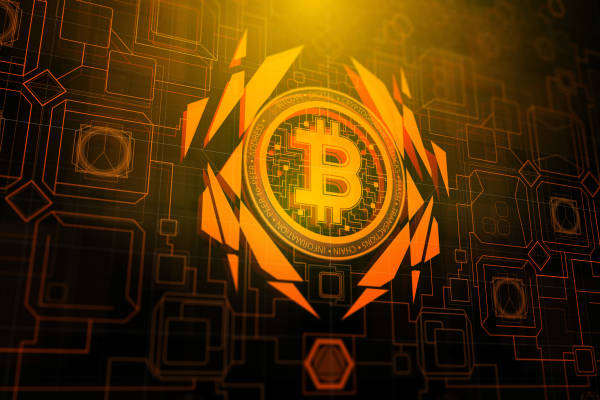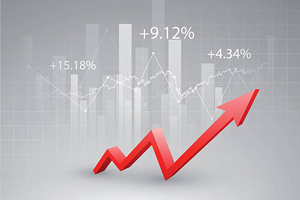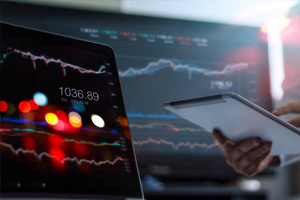Blockchain in Supply Chain: Transforming Industries with Transparency
Explore the transformative impact of blockchain in supply chain management with our comprehensive article, "Blockchain in Supply Chain: Transforming Industries with Transparency " Discover the benefits, real-world examples, and future trends shaping this technological revolution Overcome challenges, from scalability to privacy concerns, and gain insights into how blockchain enhances traceability, reduces fraud, and integrates with emerging technologies Whether you re a business professional, enthusiast, or industry insider, unlock the potential of blockchain for a transparent, efficient, and future-ready supply chain
With the rapid evolution of technology, the integration of blockchain in supply chain management has emerged as a transformative force. This article delves into the multifaceted landscape of "Blockchain in Supply Chain: Transforming Industries with Transparency." By exploring the key components, real-world examples, challenges, future trends, and frequently asked questions surrounding this integration, we aim to provide a comprehensive understanding of the impact and potential of blockchain technology in reshaping how businesses manage their supply chains.
The benefits of implementing blockchain in supply chain operations are vast, ranging from enhanced traceability and visibility to a significant reduction in fraud and errors. Through the use of smart contracts, decentralized ledgers, and integration with Internet of Things (IoT) devices, organizations can streamline processes, improve efficiency, and achieve unprecedented levels of transparency. Real-world examples illustrate how various industries are leveraging blockchain to revolutionize their supply chain practices, from ensuring food traceability in agriculture to combating counterfeit drugs in the pharmaceutical sector.
However, this technological shift is not without its challenges. Scalability issues, resistance to technology adoption, and data privacy concerns pose hurdles that demand innovative solutions. The article navigates through these challenges, offering insights into how the industry can overcome them and unlock the full potential of blockchain in supply chain management.
Looking ahead, the future trends in blockchain and supply chain present a fascinating landscape. The integration with emerging technologies, increased use of tokenization, and a focus on sustainability are poised to shape the next phase of development. Decentralized Autonomous Organizations (DAOs), NFTs in supply chain management, and the maturation of interoperability standards signal a dynamic future where collaboration, innovation, and ethical considerations play pivotal roles.
Lastly, the FAQs section addresses common queries regarding the application of blockchain in supply chains. From clarifying how blockchain enhances transparency to exploring the challenges faced during implementation and the potential retrofitting into existing systems, these FAQs aim to provide a succinct yet insightful overview for readers seeking a quick reference.
In conclusion, this article serves as a guide for industry professionals, businesses, and enthusiasts navigating the transformative landscape of blockchain in supply chain management. As the technology continues to mature and industries increasingly recognize its value, the journey toward establishing "Topical Authority" in this field becomes an exciting and imperative endeavor.

Benefits of Blockchain in Supply Chain
1. Enhanced Traceability and Visibility
- Real-time tracking of goods throughout the supply chain
- Instant access to the history and location of each product
- Reduction in the risk of counterfeit products
2. Reduction in Fraud and Errors
- Immutable and transparent ledger minimizes the risk of fraud
- Smart contracts automate and validate transactions, reducing errors
- Improved accuracy in record-keeping and documentation
3. Improved Efficiency and Cost-effectiveness
- Streamlined and automated processes lead to increased efficiency
- Reduction in manual paperwork and administrative tasks
- Potential cost savings through operational optimizations
4. Smart Contracts and Their Role
- Self-executing contracts that automatically enforce terms and conditions
- Elimination of intermediaries, reducing costs and delays
- Increased efficiency in contract management and execution
5. Decentralized Ledgers for Data Integrity
- Data distributed across a network, enhancing security
- Reduced risk of data tampering or manipulation
- Enhanced trust among stakeholders in the supply chain
6. Integration with IoT Devices
- Seamless connection with Internet of Things (IoT) devices
- Real-time monitoring of conditions such as temperature and humidity
- Immediate alerts for deviations from set parameters
7. Real-world Examples of Blockchain Implementation
- Case studies showcasing successful integration in various industries
- Demonstrations of positive impacts on supply chain visibility
- Insights into how companies have overcome challenges
8. Challenges and Solutions
- Addressing scalability issues in blockchain networks
- Strategies for overcoming resistance to technology adoption
- Ensuring data privacy and security in a decentralized system
9. Future Trends in Blockchain and Supply Chain
- Evolving technologies impacting the future of blockchain in supply chain
- Integration with emerging tech such as AI and machine learning
- Predictions for industry-wide transformations
10. FAQs on Blockchain in Supply Chain
- How does blockchain enhance transparency in supply chain management?
- What are the key challenges faced in implementing blockchain in the supply chain?
- Can blockchain be retrofitted into existing supply chain systems?
- How does blockchain impact data security and privacy in supply chains?
11. Conclusion
- Recap of the transformative potential of blockchain in the supply chain
- Call to action for businesses to explore and adopt blockchain technologies
Key Components of Blockchain in Supply Chain
1. Smart Contracts
- Self-executing contracts that automate and enforce predefined terms
- Facilitates transparent and tamper-resistant execution of agreements
- Reduces reliance on intermediaries, enhancing efficiency and speed
2. Decentralized Ledgers
- Data is distributed across a network of nodes for enhanced security
- Immutability of records ensures data integrity and authenticity
- Each participant in the supply chain has a synchronized copy of the ledger
3. Consensus Mechanisms
- Algorithms governing agreement on the state of the blockchain
- Ensures all participants have a consistent view of the distributed ledger
- Examples include Proof of Work (PoW) and Proof of Stake (PoS)
4. Cryptographic Hash Functions
- Converts input data into a fixed-size string of characters
- Ensures the security and integrity of transactions and blocks
- Plays a crucial role in linking blocks in the blockchain
5. Node Network
- Participants in the blockchain network, each maintaining a copy of the ledger
- Nodes validate and propagate transactions, contributing to consensus
- Decentralized nature enhances security and resilience
6. Integration with IoT Devices
- Connection with Internet of Things devices for real-time data input
- Monitors and records conditions like temperature, location, and status
- Enhances supply chain visibility and ensures data accuracy
7. Tokenization
- Represents physical or digital assets on the blockchain as tokens
- Facilitates fractional ownership and transferability of assets
- Can streamline complex supply chain financing processes
8. Interoperability Standards
- Defines protocols for communication and data exchange between different systems
- Ensures compatibility and seamless integration with existing supply chain technologies
- Facilitates collaboration among diverse stakeholders in the supply chain
9. Privacy and Encryption
- Implements encryption techniques to protect sensitive data
- Enables selective disclosure of information to authorized parties
- Balances transparency with the need for confidentiality in supply chain operations
10. Governance and Compliance Mechanisms
- Establishes rules and protocols for the operation of the blockchain network
- Ensures compliance with legal and regulatory requirements
- Mechanisms for dispute resolution and network upgrades
Real-world Examples of Blockchain Implementation
1. Food Traceability in Agriculture
- Utilization of blockchain to track the journey of food products from farm to table
- Enhances transparency by providing consumers with access to production and shipment data
- Mitigates the risk of foodborne illnesses and facilitates quicker recalls if needed
2. Pharmaceutical Supply Chain Integrity
- Implementation of blockchain to trace the authenticity and movement of pharmaceuticals
- Combats counterfeit drugs by ensuring the legitimacy of each transaction and shipment
- Enables regulatory bodies to monitor and enforce compliance throughout the supply chain
3. Cross-border Logistics and Customs
- Adoption of blockchain to streamline cross-border shipments and customs processes
- Reduces delays and inefficiencies by providing a transparent and immutable record of transactions
- Enhances trust among multiple parties involved in international trade
4. Luxury Goods Authentication
- Integration of blockchain to verify the authenticity of luxury goods
- Unique identifiers and records on the blockchain confirm the origin and ownership of items
- Combats the market for counterfeit luxury goods and protects brand reputation
5. Energy Trading and Grid Management
- Implementation of blockchain for decentralized energy trading among consumers
- Smart contracts facilitate automatic and transparent transactions in a peer-to-peer network
- Enables efficient utilization of renewable energy resources and grid management
6. Aerospace and Defense Supply Chain
- Use of blockchain to ensure the integrity and traceability of components in aerospace manufacturing
- Reduces the risk of counterfeit parts entering the supply chain, enhancing safety
- Improves collaboration among various stakeholders in the aerospace industry
7. Fashion Industry Supply Chain
- Blockchain application to track the production and distribution of fashion items
- Enhances sustainability by providing consumers with visibility into the supply chain
- Combats issues like unethical labor practices and promotes transparency
8. Digital Identity Verification
- Implementation of blockchain for secure and decentralized digital identity verification
- Ensures user privacy and reduces the risk of identity theft or fraud
- Streamlines processes like KYC (Know Your Customer) for various industries
9. Entertainment and Royalty Tracking
- Integration of blockchain to track and distribute royalties in the entertainment industry
- Smart contracts automate royalty payments, reducing disputes and delays
- Ensures fair compensation for artists and content creators
10. Humanitarian Aid and Supply Chain Transparency
- Use of blockchain to track the distribution of humanitarian aid in crisis situations
- Ensures transparent and accountable allocation of resources to affected areas
- Reduces the risk of corruption and ensures aid reaches those in need efficiently
Challenges and Solutions
1. Scalability Issues in Blockchain Networks
- Challenge: Limited scalability due to transaction processing speed and block size constraints
- Solution: Implementation of off-chain solutions like sidechains or layer 2 protocols
- Solution: Ongoing research and development to optimize consensus algorithms
2. Resistance to Technology Adoption
- Challenge: Reluctance among industry stakeholders to adopt new and unfamiliar technology
- Solution: Industry-wide education and awareness campaigns about blockchain benefits
- Solution: Pilot programs and gradual integration to demonstrate tangible advantages
3. Data Privacy and Security Concerns
- Challenge: Ensuring privacy while maintaining the transparent nature of blockchain
- Solution: Implementation of advanced cryptographic techniques for data encryption
- Solution: Permissioned blockchains with controlled access to sensitive information
4. Integration with Existing Systems
- Challenge: Seamless integration of blockchain with legacy supply chain management systems
- Solution: Development of standardized protocols for interoperability
- Solution: Incremental implementation with thorough testing and adaptation
5. Regulatory Compliance
- Challenge: Navigating complex regulatory frameworks surrounding blockchain technology
- Solution: Collaboration with regulatory bodies to establish clear guidelines
- Solution: Implementation of compliance-focused features such as audit trails
6. Energy Consumption Concerns
- Challenge: High energy consumption associated with certain blockchain consensus mechanisms
- Solution: Exploration of alternative consensus mechanisms with lower energy requirements
- Solution: Integration of blockchain with sustainable energy sources
7. Lack of Standardization
- Challenge: Absence of universally accepted standards for blockchain in the supply chain
- Solution: Industry collaboration to develop and establish standard protocols
- Solution: Adoption of emerging standards from recognized blockchain organizations
8. Smart Contract Vulnerabilities
- Challenge: Exploitable vulnerabilities in smart contract code leading to security breaches
- Solution: Comprehensive code audits and security assessments
- Solution: Continuous monitoring and updating of smart contract code to address vulnerabilities
9. Governance and Consensus Divergence
- Challenge: Divergent views on governance and consensus mechanisms within blockchain networks
- Solution: Establishment of clear governance models and decision-making processes
- Solution: Regular communication and collaboration among network participants
10. Limited Skillset and Expertise
- Challenge: Shortage of professionals with expertise in blockchain development and implementation
- Solution: Training programs and educational initiatives to build a skilled workforce
- Solution: Collaboration with blockchain development communities and experts
Future Trends in Blockchain and Supply Chain
1. Integration with Emerging Technologies
- Continued integration of blockchain with AI and machine learning for advanced analytics
- Synergies with IoT to create a more interconnected and data-rich supply chain ecosystem
- Exploration of 5G technology to enhance the speed and reliability of blockchain networks
2. Increased Use of Tokenization
- Expansion of tokenization beyond cryptocurrencies to represent various assets
- Utilization of tokenized assets for fractional ownership and streamlined transactions
- Emergence of new token standards and protocols for specific supply chain use cases
3. Sustainability and Green Supply Chains
- Blockchain applications to promote and verify sustainable and ethical supply chain practices
- Integration with carbon footprint tracking and certification processes
- Incentivizing eco-friendly practices through blockchain-based reward systems
4. Decentralized Autonomous Organizations (DAOs)
- Growth of DAOs in supply chain management for decentralized decision-making
- Smart contracts enabling automated and transparent governance processes
- DAOs providing a framework for collaborative and democratic supply chain networks
5. Cross-Industry Collaboration
- Increased collaboration among industries to establish universal blockchain standards
- Shared blockchain networks facilitating seamless cross-industry supply chain operations
- Collaborative efforts to address challenges and develop interoperable solutions
6. Evolution of Privacy-Preserving Blockchains
- Advancements in privacy-focused blockchain solutions to address confidentiality concerns
- Implementation of zero-knowledge proofs and cryptographic techniques for enhanced privacy
- Development of hybrid solutions balancing transparency and data protection
7. NFTs (Non-Fungible Tokens) in Supply Chain
- Exploration of NFTs to represent unique and valuable assets within the supply chain
- Use cases include tracking high-value items, provenance verification, and digital twins
- Potential for NFTs to revolutionize ownership and authenticity verification
8. Interoperability Standards Maturation
- Maturation of blockchain interoperability standards for seamless communication
- Increased adoption of protocols enabling different blockchains to work together
- Facilitation of multi-chain ecosystems for enhanced flexibility and collaboration
9. Enhanced Security Measures
- Continued research and implementation of quantum-resistant cryptography
- Integration of advanced identity management solutions for secure access
- Collaboration with cybersecurity experts to stay ahead of emerging threats
10. Mainstream Adoption and Regulatory Clarity
- Gradual mainstream adoption of blockchain in supply chain as understanding matures
- Establishment of clear and supportive regulatory frameworks for blockchain integration
- Increased trust and confidence in blockchain technology among businesses and consumers
FAQs on Blockchain in Supply Chain
Q1. How does blockchain enhance transparency in supply chain management?
A1. Blockchain enhances transparency by creating an immutable and decentralized ledger. Each transaction and movement within the supply chain is recorded in a secure and transparent manner, providing stakeholders with real-time visibility. This ensures that information is trustworthy and reduces the risk of fraud or manipulation.
Q2. What are the key challenges faced in implementing blockchain in the supply chain?
A2. Implementing blockchain in the supply chain comes with challenges such as scalability issues, resistance to adoption, and the need for interoperability with existing systems. Overcoming these challenges requires a combination of technological innovation, industry collaboration, and gradual integration strategies.
Q3. Can blockchain be retrofitted into existing supply chain systems?
A3. Yes, blockchain can be retrofitted into existing supply chain systems. However, it requires careful planning and integration to ensure compatibility. Companies can adopt a phased approach, starting with specific use cases or pilot programs before expanding blockchain implementation across the entire supply chain.
Q4. How does blockchain impact data security and privacy in supply chains?
A4. Blockchain enhances data security and privacy by using advanced cryptographic techniques. The decentralized nature of the ledger ensures that data is distributed and tamper-resistant. Permissioned blockchains allow for controlled access to sensitive information, providing a balance between transparency and confidentiality.
Q5. What are the future trends for blockchain in the supply chain?
A5. Future trends include increased integration with emerging technologies like AI, tokenization for various assets, a focus on sustainability, the rise of Decentralized Autonomous Organizations (DAOs), and maturation of interoperability standards. These trends collectively contribute to the continued evolution and widespread adoption of blockchain in supply chain management.










